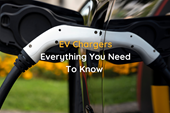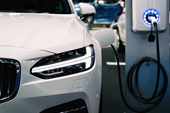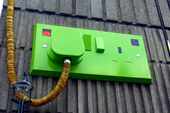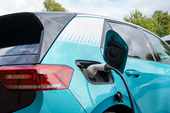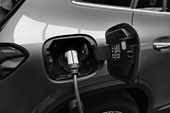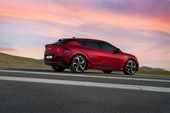
Who Invented The Electric Car?
The question of who invented the electric car actually stretches further back in time than you might think. Although Tesla is one of the most well-known names in electric cars and the creation and popularisation of electric vehicles which are usable by the public, they are not actually the first electric vehicles ever created. Read on to find out who really invented the electric car.
First iteration
It is generally accepted that the first iteration of a fully electric-powered vehicle was created as long ago as 1832 by Robert Anderson. The Scottish inventor created a fairly crude contraption that was powered on primary power cells. The carriage was built in Scotland and the exact year of its creation is unknown but was between 1832 and 1839. Robert Anderson is famed for this creation and is generally accredited with the invention of the first electric car as his vehicle could run on one single charge - an impressive feat at the time.
"at the beginning of the 1900s, electric vehicles had become so popular that they accounted for around a third of vehicles on the road."
Practical Electric Vehicles
Another Scotsman, William Morrison, later developed a more usable iteration of the electric vehicle. As a chemist, his interest in testing the ability of a battery to better store electricity led to his creation of the first more usable self-powered vehicle, a task he accomplished in the United States. He used 24 of his batteries to power a horse-drawn carriage, using their energy to drive an electric motor at the rear of the vehicle. This was seen as a success with the batteries not only driving the car but also having enough power to move the vehicle with a group of people on board.
Popularisation of electric vehicles
While some cruder versions of electric-powered carriages had emerged in earlier years, it wasn't until around the 1890s that electric cars began to see more regular use and a rise in popularity amongst everyday people. It was at this time that electric cars started to be used more amongst taxi ranks and some people even bought the vehicles for themselves. For a time, electric vehicles were already competing with gas or steam-powered options and rivalling even the popular Ford Model T. Only a decade later, at the beginning of the 1900s, electric vehicles had become so popular that they accounted for around a third of vehicles on the road.
First hybrid electric car
The first hybrid car was created by Ferdinand Porsche, the founder of the sports car Porsche. This vehicle was called the Lohner-Porsche Mixte and ran on electricity which was stored in the battery as well as a gasoline engine.
Mass produced hybrid cars
There was a lull in the desire for electric vehicles due to an abundance of fuel. It wasn't until gas prices started to see an increase again in the 1970s that interest in alternative power supplies started up again. Even then, it wasn't until 1997 that the first mass-produced hybrid car was released, the Toyota Prius. The hybrid saw great success and, being bought by many celebrities and stars across the world, saw a huge rise in interest in electric vehicles.
Commercially available vehicles
In 2010, the Chevy Volt was the first plug-in hybrid to be released commercially. GM produced the car and it marks the creation of the first electric or hybrid vehicles to be broadly available to the public. This is followed by Nissan's all-electric LEAF in December 2010 and soon a whole host of other electric and hybrid-powered vehicles. With an ever-growing range now available to the general public, the cost of electric vehicles is following, resulting in more and more interest. Now, as people are trying to move away from oil and fuels which are bad for the environment, it looks as if electric vehicles are here to stay, all thanks to the inventions of the earliest inventors in the 1830s and beyond.
Our Final Word
It's clear the electric car is here to stay. With improvements coming daily and every manufacturer shifting towards an EV-heavy line up it wont be long until electric cars are the most common vehicles out there. Remember, they can still be susceptible to depreciation! If you want to protect yourself against a financial shortfall, which can still happen in an electric vehicle, consider our 5* Rated Gap Insurance.
If you've enjoyed reading this, why not share it with your network? If you have any questions about this article get in touch with James via our social media channels.



